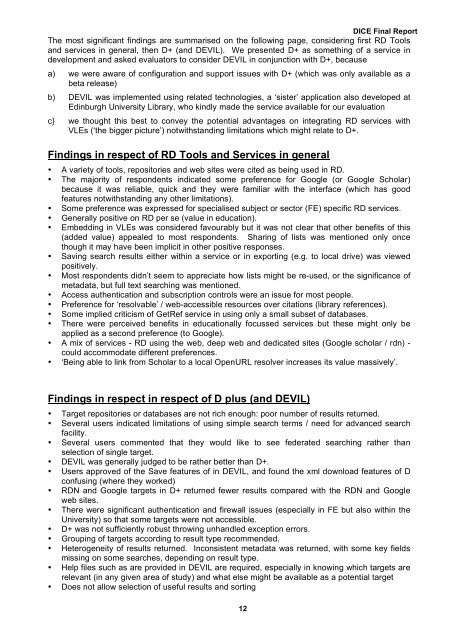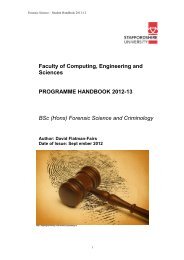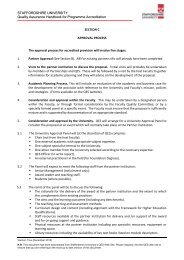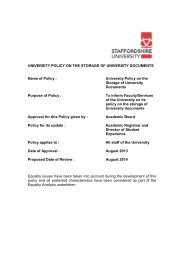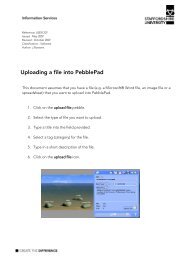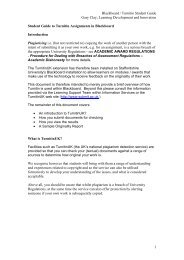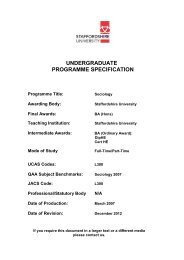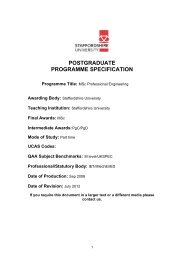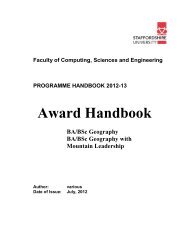DICE Project Final Report Resource Discovery Tools Evaluation and ...
DICE Project Final Report Resource Discovery Tools Evaluation and ...
DICE Project Final Report Resource Discovery Tools Evaluation and ...
You also want an ePaper? Increase the reach of your titles
YUMPU automatically turns print PDFs into web optimized ePapers that Google loves.
<strong>DICE</strong> <strong>Final</strong> <strong>Report</strong><br />
The most significant findings are summarised on the following page, considering first RD <strong>Tools</strong><br />
<strong>and</strong> services in general, then D+ (<strong>and</strong> DEVIL). We presented D+ as something of a service in<br />
development <strong>and</strong> asked evaluators to consider DEVIL in conjunction with D+, because<br />
a) we were aware of configuration <strong>and</strong> support issues with D+ (which was only available as a<br />
beta release)<br />
b) DEVIL was implemented using related technologies, a ‘sister’ application also developed at<br />
Edinburgh University Library, who kindly made the service available for our evaluation<br />
c} we thought this best to convey the potential advantages on integrating RD services with<br />
VLEs (‘the bigger picture’) notwithst<strong>and</strong>ing limitations which might relate to D+.<br />
Findings in respect of RD <strong>Tools</strong> <strong>and</strong> Services in general<br />
• A variety of tools, repositories <strong>and</strong> web sites were cited as being used in RD.<br />
• The majority of respondents indicated some preference for Google (or Google Scholar)<br />
because it was reliable, quick <strong>and</strong> they were familiar with the interface (which has good<br />
features notwithst<strong>and</strong>ing any other limitations).<br />
• Some preference was expressed for specialised subject or sector (FE) specific RD services.<br />
• Generally positive on RD per se (value in education).<br />
• Embedding in VLEs was considered favourably but it was not clear that other benefits of this<br />
(added value) appealed to most respondents. Sharing of lists was mentioned only once<br />
though it may have been implicit in other positive responses.<br />
• Saving search results either within a service or in exporting (e.g. to local drive) was viewed<br />
positively.<br />
• Most respondents didn’t seem to appreciate how lists might be re-used, or the significance of<br />
metadata, but full text searching was mentioned.<br />
• Access authentication <strong>and</strong> subscription controls were an issue for most people.<br />
• Preference for ‘resolvable’ / web-accessible resources over citations (library references).<br />
• Some implied criticism of GetRef service in using only a small subset of databases.<br />
• There were perceived benefits in educationally focussed services but these might only be<br />
applied as a second preference (to Google).<br />
• A mix of services - RD using the web, deep web <strong>and</strong> dedicated sites (Google scholar / rdn) -<br />
could accommodate different preferences.<br />
• ‘Being able to link from Scholar to a local OpenURL resolver increases its value massively’.<br />
Findings in respect in respect of D plus (<strong>and</strong> DEVIL)<br />
• Target repositories or databases are not rich enough: poor number of results returned.<br />
• Several users indicated limitations of using simple search terms / need for advanced search<br />
facility.<br />
• Several users commented that they would like to see federated searching rather than<br />
selection of single target.<br />
• DEVIL was generally judged to be rather better than D+.<br />
• Users approved of the Save features of in DEVIL, <strong>and</strong> found the xml download features of D<br />
confusing (where they worked)<br />
• RDN <strong>and</strong> Google targets in D+ returned fewer results compared with the RDN <strong>and</strong> Google<br />
web sites.<br />
• There were significant authentication <strong>and</strong> firewall issues (especially in FE but also within the<br />
University) so that some targets were not accessible.<br />
• D+ was not sufficiently robust throwing unh<strong>and</strong>led exception errors.<br />
• Grouping of targets according to result type recommended.<br />
• Heterogeneity of results returned. Inconsistent metadata was returned, with some key fields<br />
missing on some searches, depending on result type.<br />
• Help files such as are provided in DEVIL are required, especially in knowing which targets are<br />
relevant (in any given area of study) <strong>and</strong> what else might be available as a potential target<br />
• Does not allow selection of useful results <strong>and</strong> sorting<br />
12


